Strategic Analysis Balkan Brief
January 2023
Petra Bošková, Barbora Tomanová, Viktória Širocká, Adam Németh, Natália Lešňovská, Chiara Mihalčatinová, Lýdia Chobotová, Adam Šiko, Marianna Dobisová, Katarína Žiaranová, Ivan Iliev
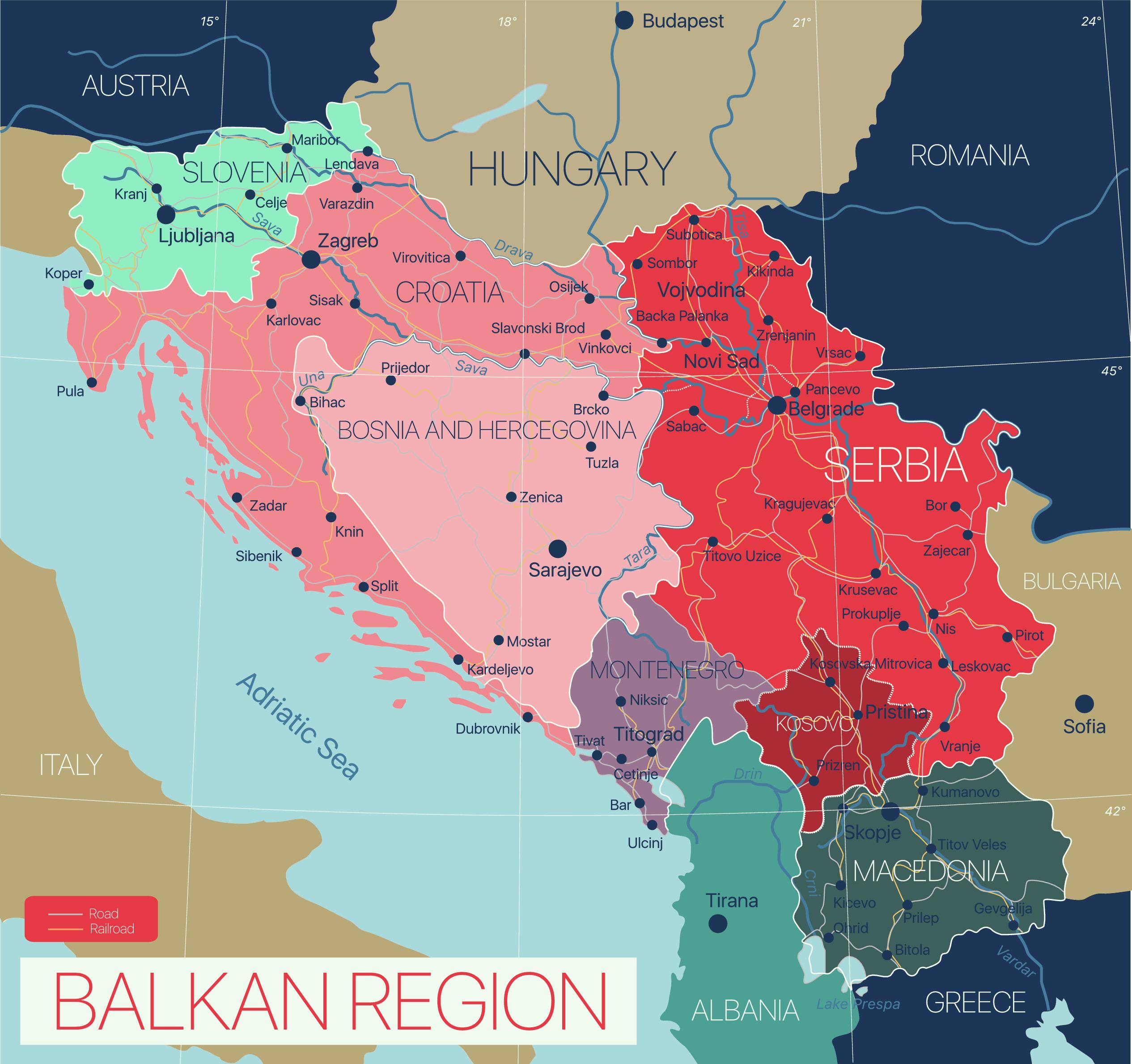
Map of the Balkan region; Graphics: Olinchuk/Shutterstock
Albania
Albanian opposition in crisis right before elections approach
On January 12, 2023, Enkelejd Alibeaj, the leader of one faction of the divided Albanian Democratic Party, expelled four members from the parliamentary group, exacerbating divisions within the opposition just four months before local elections.
After founder Sali Berisha was expelled by ex-chairman Lulzim Basha after the former was sanctioned by the US State Department and later by the UK, the Democratic Party (PD) split into two groups in 2021. A tense standoff ensued, with both Berisha and Basha attempting to take control of the party, culminating in a violent protest at the party headquarters on January 8, 2022.
Oerd Bylykbashi, Belind Klliçi, Agron Shehaj, and Tritan Shehu are the four expelled deputies. Their failure to distance themselves from the violence that occurred during the protest at the headquarters is the cause of their expulsion, Alibeaj claims.
The announcement from Alibeaj’s group reads, “For this purpose, the Parliament of Albania has been officially informed that MPs Tritan Shehu, Oerd Bylykbashi, Belind Kelliçi, and Agron Shehaj are no longer part of the Parliamentary Group of the Democratic Party, effective 11.01.2023.”
However, this is not the only problem that the party is dealing with because the Central Election Commission invited all parties to name their election administration officials, which put the disjointed PD in a difficult situation.
The party has until January 29 to name the officials, but there is a disagreement between the two factions over who has the authority to register them, with Berisha claiming that the court’s ruling gives him that authority, which is denied by the other side.
Local elections are set to take place in April 2023, and they will be crucial as the opposition boycotted the 2019 vote leaving the ruling Socialist Party to govern almost every municipality for the last four years.
Sources:
-
Alice Taylor, EURACTIV, “Divided Albanian opposition in crisis, MPs expelled as elections approach” https://www.euractiv.com/section/politics/news/divided-albanian-opposition-in-crisis-mps-expelled-as-elections-approach/
Bosnia and Herzegovina
Bosnia’s new coalition loses two parties
On January 6, 2023, the People’s European Alliance (NES) and the Party for BiH (SBiH) announced their departure from the governing coalition. The two parties were originally part of a 10-party coalition formed in December after two months of negotiations.
The presidents of the departing parties, Semir Efendić and Nermin Ogrešević, justified their actions with the following facts. The first is the recent adoption of the Law on Immovable Property relating to public authorities in the Republika Srpska (RS). The parties demanded the abolition of the law, but their demand was not granted. The second reason is the allocation of ministerial posts. The NES and SBiH disagreed that the Alliance of Independent Social Democrats (SNSD) should be given 4 ministerial seats, leaving the other coalition parties with the remaining three. According to them, the distribution of ministries is not in line with the election result. Finally, the third reason was disagreement with the statements and rhetoric of the SNSD leader, Milorad Dodik, who was accused of violating the Agreement on guidelines, principles, and goals in the executive and legislative authorities.
However, the departure of the NES and SBiH does not mean the disintegration of the coalition. The new coalition still has 23 seats, which is enough to create a majority in the BiH parliament. Thus, the current new governing coalition will be composed of the SNSD, the HDZ, and six parties from the so-called “Osmorka” (Eight). Moreover, according to political strategist Vehid Sehic, future political developments assume that the governing coalition will continue to be supported by the NES and SBiH, and hence they will not participate in opposition politics.
Sources:
-
SarajevoTimes, ,,Coalition Partners discussed the Formation of the Government“, https://sarajevotimes.com/coalition-partners-discussed-the-formation-of-the-government/
-
Azem Kurtic, BalkanInsight, “Bosnia’s Governing Coalition Cracks Only 20 Days AfterFormation“, https://balkaninsight.com/2023/01/06/bosnias-governing-coalition-cracks-only-20-days-after-formation/
Croatia
Croatia Government steps to curb unfair price hikes following Euro adoption
On January 1, 2023, Croatia adopted the Euro as its official currency, but with it came a wave of price hikes that have angered citizens. The government is now taking steps to address this issue and ensure fair pricing for goods and services.
The government has stated that it will not tolerate unfair price increases and is considering penalties for those who break the law. Economy and Sustainable Development Minister Davor Filipovic mentioned that blacklists of retailers are being discussed by the government, while consumer associations accuse retailers of manipulating prices for profit. The government plans to send a warning message to retailers in hopes of lowering citizens’ stress regarding price increases and the introduction of the Euro.
Consumers have reported noticeable price increases, specifically for coffee and baked goods, likely because prices were rounded upwards during the conversion process. The Consumer protection association is urging to do case-by-case tracking and to have a critical mass of consumers put a trader on a shame list. The media report that the price of bread already rose in real terms by 30% last year, and prices of oil, gas, and wheat also jumped, posing a challenge for many citizens with an already low standard of living.
Croatian media sources have expressed the opinion that the government should have anticipated and made preparations for potential price increases as a result of the country’s adoption of the Euro currency. Critics had highlighted that a similar situation occurred in Slovenia when it introduced the Euro in 2004 and have suggested that the government implement measures such as creating “blacklists” of retail chains that raise prices. However, some individuals have argued that implementing such regulations would be challenging, if not impossible and that prices are likely to remain unchanged.
It is worth noting that the decision to adopt the Euro in Croatia was made without any public consultation or debate, despite studies indicating that Croatian citizens were divided on the issue. A survey conducted in 2022 found that as many as 40% of Croats were opposed to the adoption of the new currency. Despite this opposition, the pro-European Union government led by Andrej Plenković ultimately decided to proceed with the country’s entry into the eurozone.
Sources:
- Vuk Tesija, Balkan Insight, „Price Hikes Shock Croatia Following Introduction of Euro“, https://balkaninsight.com/2023/01/04/price-hikes-shock-croatia-following-introduction-of- euro/
- Goran Andrijanić, REMIX, „Croatians shocked by soaring prices after adopting euro currency“, https://rmx.news/poland/croatians-shocked-by-soaring-prices-after-adopting- euro-currency/
- Zoran Radosavljevic, Euractiv, „Croatia in the throes of Euro price hikes“,https://www.euractiv.com/section/politics/news/croatia-in-throes-of-euro-price-hikes/
Montenegro
Early legislative elections are a possibility in Montenegro after a new government composition failure
On January 4, 2023, talks on forming a new government led by an ex-diplomat, Miodrag Lekic, failed. The ruling civic movement URA and the Socialist People’s Party (SNP) insisted that the principles and structure of Lekic’s cabinet should first be presented before holding a vote in parliament. One of the leaders of the Democratic Front party, Andrija Mandic, said Montenegro should prepare for early elections, which should be simultaneously held with presidential elections.
Lekic was first proposed and endorsed by 41 MPs on September 19, 2022, but the DPS party chief, president Milo Djukanovic, ignored the proposal. As a prime minister-designate, Lekic hoped to form a new government composed of the Democratic Front, the Democrats, and the URA movement by January 20. 2023. The three parties control 41 of the legislature’s 81 seats.
The last government collapse in Montenegro took place on August 19, 2022. Ever since the ousting of its leader Dritan Abazovic, members of the ruling majority that ousted the Democratic Party of Socialists (DPS) in the 2020 elections have tried to form a new government without calling an election.
This was only possible after adopting a controversial law curbing president Milo Djukanovic’s powers on November 1, which enabled a majority of MPs to propose a prime minister-designate even if the President refused to propose a candidate. This was vehemently criticized by the European Union and the United States, who expressed concerns about the possible implications these actions could have on Montenegro’s path to EU membership and relationships with its allies.
“I made everything public and managed to keep the dignity of the country so that its government is decided in Montenegro … Unfortunately, there will be no government, and many forces defeated in August 2020 will rejoice,” Lekic told Balkan Insight, referring to the long rule of DPS before the August 2020 elections.
Miodrag Lekic has been a part of the Montenegrin political scene since the 1990s. He served as the foreign minister and the ambassador of Yugoslavia to Italy under the rule of Serbian President Slobodan Milosevic. He also opposed Montenegro’s accession to NATO in 2017 and voted against a resolution condemning Russia’s aggression against Ukraine last February.
Sources:
- RFE/RL’s Balkan Service, “Montenegrin Parties Fail To Agree On New Government Led By Lekic”, https://www.rferl.org/a/montenegro-failed-government-lekic-/32207750.html
- Samir Kajosevic, Balkan Insight, “Montenegro Close to Snap Elections as Govt Negotiations Fail”, https://balkaninsight.com/2023/01/05/montenegro-close-to-snap-elections-as-govt-negotiations-fail/
Kosovo
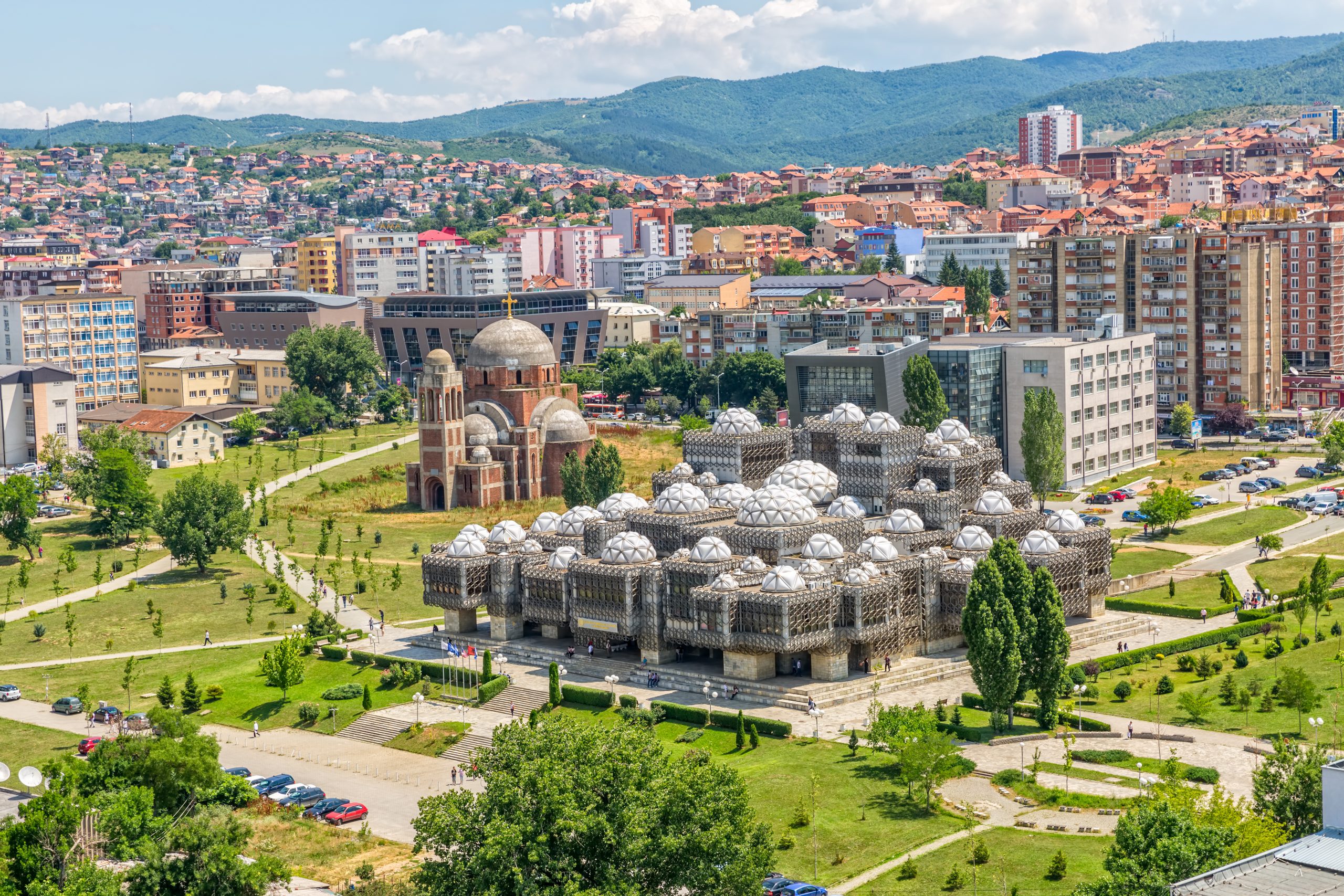
Prishtina, Kosovo. Photo: OPIS/ Shutterstock.com
Derecognition of Kosovo’s independence
On January 5, 2023, the President of Serbia – Aleksandar Vucic, claimed that nine countries (six of them from Africa) had withdrawn their recognition of Kosovo. On the other hand, Kosovo’s diplomatic mission says at least five of the nine countries Serbia claims have derecognized Kosovo have not done so.
Vucic claims now only 84 countries unequivocally recognize Kosovo’s independence. “We have nine that have withdrawn their recognition: Somalia, Burkina Faso, Gabon, Eswatini, Libya, Guinea, Antigua, and Barbuda, St. Lucia, Maldives, and we are waiting for the tenth.” (Vucic 2023). It all started after Kosovo applied for membership in the Council of Europe in May 2022, which evoked a reaction on Serbia’s site stating Serbia would resume its campaign for Kosovo’s derecognition. The President of Serbia was referring to agreements Serbia and Kosovo signed in September 2020 in Washington, under which Serbia promised to halt its effort to persuade nations to “derecognize” Kosovo for a year, and Kosovo pledged to halt its application to join international organizations for the same period of time.
However, the diplomatic missions of Kosovo have been refuting Serbia’s most recent assertions about recent denials of Kosovo’s independence by publishing pictures of its diplomats meeting with high-ranking representatives of these nations. Five of these countries verbally expressed their continuing partnership with Kosovo during the first two weeks of January. Kosovo’s authorities, namely prime minister Kurti referred to Vucic’s assertions as a component of “Belgrade’s attempts in a position where they have lost the support of Western democracies in the international arena against the independence of Kosovo.” Besides Kurti, Vucic’s statements were quickly refuted by the Kosovo Foreign Ministry, which stated that it had not been informed of any derecognition.
- Bami, Xhorxhina, Balkan Insight, “Kosovo Debunks Serbian Claims About Derecognitions.” https://balkaninsight.com/2023/01/13/kosovo-debunks-serbian-claims-about-derecognitions/
- Stojanovic, Milica, Balkan Insight. “Serbian President Claims Nine More Kosovo Recognition Withdrawals.” https://balkaninsight.com/2023/01/05/serbian-president-claims-nine-more-kosovo-recognition-withdrawals/
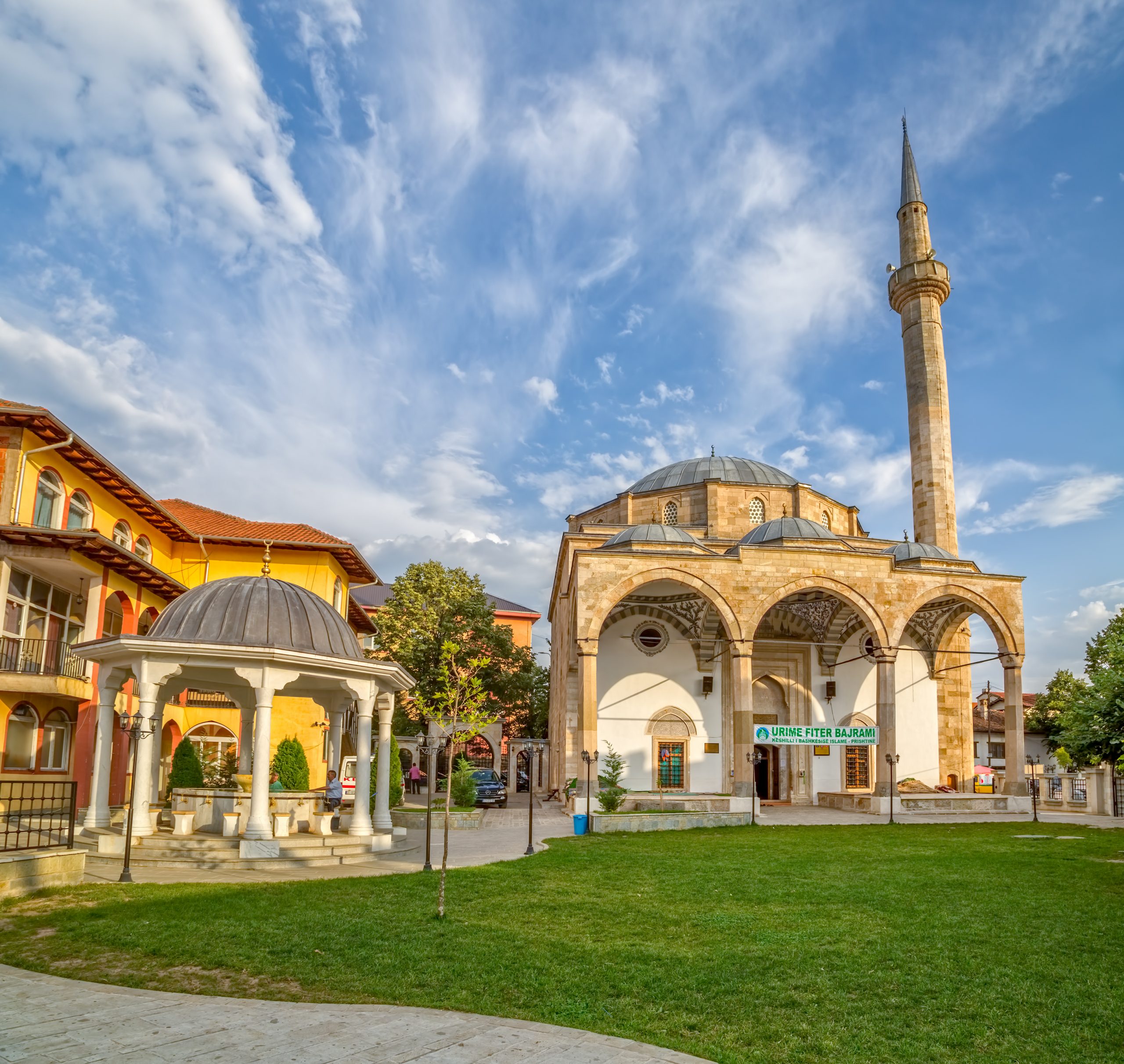
Pristina, Kosovo. Photo: Shutterstock.com
Kosovo – Tensions with Serbia continue
When Kosovo and Serbia finally reached a deal over the license plate issue in late November 2022, tensions between the countries seemed to quiet down. However, when on December 10, 2022, a Serbian ex-policeman Dejan Pantić was arrested for an alleged attack on municipal election commission offices in Kosovo, and tensions rose again.
As a result of discontent over the arrest, Kosovo Serbs have put up road barricades in six locations, even at the Merdare border crossing point with Serbia. PM of Kosovo, Albin Kurti, stated that “setting up barricades is an illegal and unacceptable action and will not be tolerated” and maintained that Belgrade is involved in the barricades. The Serbian President refused these allegations. Moreover, Serbians behind the barricades issued three conditions, stating that only after their fulfilment would the barricades be removed.
The conditions were for Pantić to be released, no deployment of Kosovo Security Forces in Serb-majority cities, and scrapping of a list of Serbs who would be arrested for the roadblocks. Subsequently, Kosovo promised to fulfill the conditions, while the EU and the US guaranteed Serbs the fulfillment would occur. With the help of the NATO peacekeeping mission KFOR, the barricades were removed on January 6, 2023.
However, also on January 6, 2023 – the Orthodox Christmas Eve, a drive-by shooting occurred in Kosovo, resulting in two injured Serbs. Kosovo police shortly after arrested a suspect, who is a member of the Kosovo Security Forces. The incident again sparked tensions among Kosovo Serbs, who put up a barricade in the town where the incident occurred. Kosovo Prime Minister, Kurti, condemned the attack and promised that all citizens would be protected without any distinctions. On the other hand, Serbian Prime Minister Ana Brnabić stated that “even on the Orthodox holy night, Serbs in Kosovo are not safe”. The EU also reacted to this incident and called for a thorough investigation and exertion of justice.
Later, on January 13, 2023, Austria issued a statement that it was ready to support the KFOR forces in Kosovo with its own troops to mitigate the tensions between Kosovo and Serbia and preserve peace in the region. Austria also offered to act as a mediator in the dialogue with Serbia and Kosovo.
Sources:
- Xhorxhina Bami & Milica Stojanovic, Balkan Insight, “Kosovo Border Crossing Reopens as Serbia Promises to Remove Barricades”, https://balkaninsight.com/2022/12/29/kosovo-border-crossing-reopens-as-serbia-promises-to-remove-barricades/
- Perparim Isufi, Balkan Insight, “Kosovo Police Arrest Suspect After Two Serbs Injured by Gunshots”, https://balkaninsight.com/2023/01/06/kosovo-police-arrest-suspect-after-two-serbs-injured-by-gunshots/
- Nikolaus J. Kurmayer, EURACTIV, “Austria ready to send soldiers to reinforce peace in Kosovo”, https://www.euractiv.com/section/politics/news/austria-ready-to-send-soldiers-to-reinforce-peace-in-kosovo/
- Talha Ozturk, Anadolu Agency, “EU condemns shooting of 2 Serbians in Kosovo on Orthodox Christmas Eve”, https://www.aa.com.tr/en/europe/eu-condemns-shooting-of-2-serbians-in-kosovo-on-orthodox-christmas-eve/2782180
- Alice Taylor, EURACTIV, “Kosovo closes biggest border point with Serbia as barricades spread”, https://www.euractiv.com/section/global-europe/news/kosovo-closes-biggest-border-point-with-serbia-as-barricades-spread/
- Alice Taylor, EURACTIV, “NATO-led peacekeepers dismantle last barricades in north Kosovo”, https://www.euractiv.com/section/politics/news/nato-led-peacekeepers-dismantle-last-barricades-in-north-kosovo/
North Macedonia
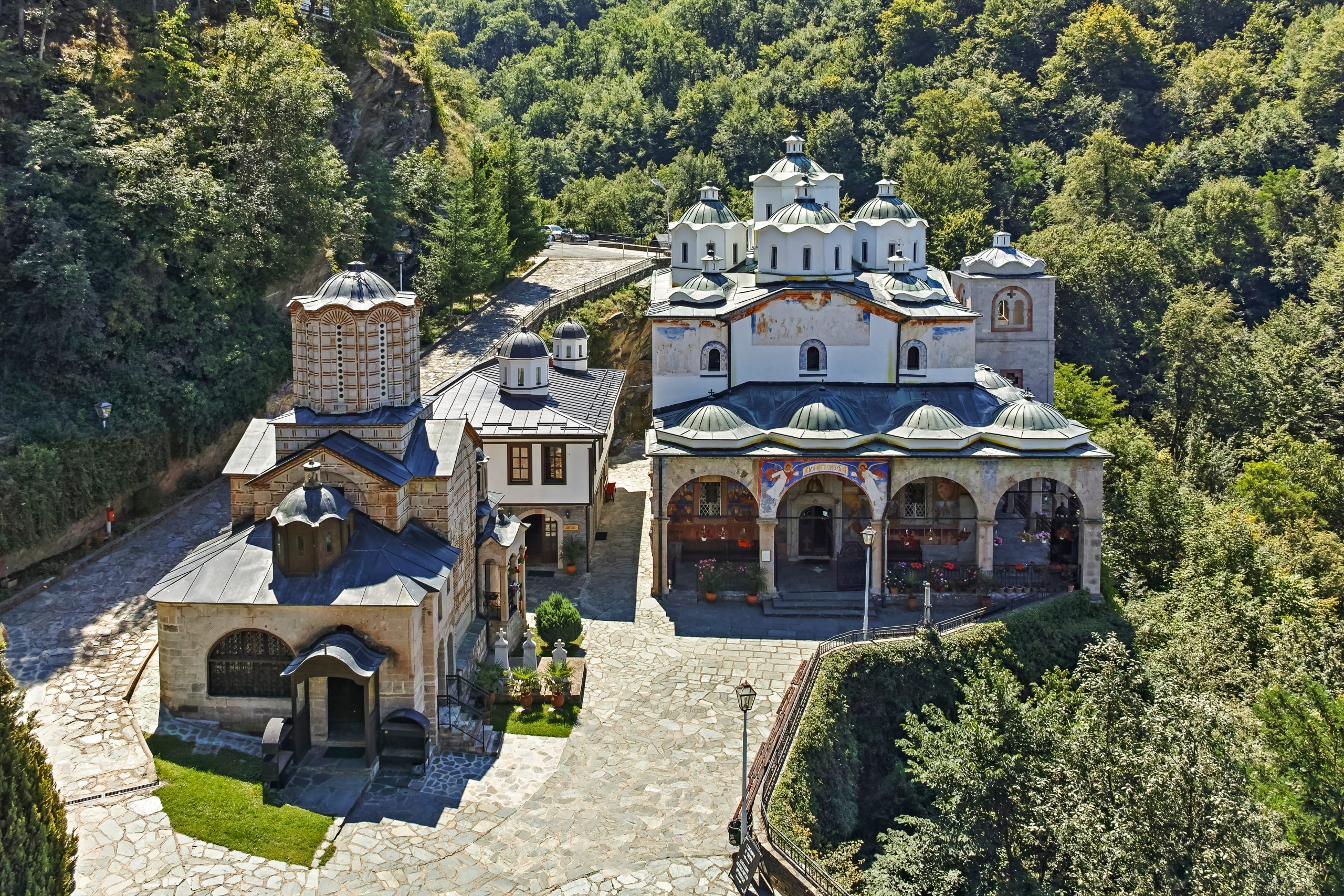
Osogovo, North Macedonia. Photo: hdenislava/Shutterstock.com
Meeting of Albanian parties of North Macedonia in Tirana
On January 10, 2023, Albanian PM – Edi Rama met in Tirana with the main representatives of the Albanian political parties, which are also active in the Parliament of North Macedonia. In his invitation, the Albanian PM did not elaborate much on the topics of the meeting. However, the participants mainly discussed the internal political situation in North Macedonia and the continuation of the two countries’ integration process into the European Union. Indeed, both Albania and North Macedonia have started accession negotiations together following an EU decision.
Not all invited political leaders of Albanian parties attended the meeting. For example, the leader of the Besa movement did not participate because of his disagreement with the DUI party and its politics.
The meeting provoked mixed reactions across the political spectrum in North Macedonia. In particular, the opposition party VMRO-DPMNE was highly critical of the meeting, describing it as detrimental to North Macedonia and its national interests. At the same time, the opposition party said that the meeting was merely the result of the panic of Prime Minister Dimitar Kovachevski’s government to fail to adopt changes to the constitution. It is precisely these changes to the constitution that the country must make in order to meet the conditions of the French proposal, on the basis of which the European Union has opened accession negotiations with North Macedonia. The French proposal is based on Bulgaria’s requests, which have been vetoing the North Macedonia EU integration process over different bilateral issues, including culture, language, common history and historical figures.
On the other hand, Foreign Minister Bujar Osmani (ethnic Albanian) sees nothing controversial in the meeting. According to Osmani, it was a New Year’s meeting aimed at discussing current events in the region and its further development without any further political motives on the side of Albania. President Stevo Pendarovski expressed a very similar view. According to Pendarovski, the events or meetings taking place in Tirana should no longer be seen as a threat to North Macedonia. The President described Albania as a friendly state and stated that he does not think that there is a threat of an anti-Macedonian scenario.
The relations between North Macedonia and Albania are very interesting. In the past, there has been a lack of respect for the rights of the Albanian minority on the territory of North Macedonia, which has led to several local conflicts in the country and even to the threat of irredentism. North Macedonia’s approach to ethnic minorities has also been criticized by the European Union. In 2001 the conflict led to the adoption of the Ohrid Framework Agreement, which, among other things, brought about several changes to the North Macedonian constitution. One of the most significant changes was the recognition of Albanian as an official language, both at the local and national levels.
Sources:
- Nova Makedonija, “Лидерите на партиите на Албанците на средба со Рама во Тирана, од БЕСА ќе отсуствуваат“, https://novamakedonija.com.mk/makedonija/liderite-na-partiite-na-albancite-na-sredba-so-rama-vo-tirana-od-besa-kje-otsustvuvaat/
- Vox, “REL’s analysis of the meeting in Tirana: Rama “stirs up” the political scene in North Macedonia“,https://www.voxnews.al/english/politike/analiza-e-rel-per-takimin-ne-tirane-rama-trazon-skenen-politike-ne-maqe-i29549
- Eduart Halili, “President Pendarovski Defends Rama after Meeting Albanian Parties of N. Macedonia“, https://albaniandailynews.com/news/president-pendarovski-defends-rama-after-meeting-albanian-parties-of-n-macedonia
OSCE Chairpersonship 2023 in North Macedonia
The new year 2023 brings a change of the chair of OSCE (Organization for Security and Cooperation in Europe). The following year North Macedonia is about to take over this position. For the first time, this country will act as Chair of OSCE, which currently has 57 member states and 11 partners for cooperation.
The new OSCE Chairman-in-Office is Bujar Osmani (member of the Democratic Union for Integration, the largest ethnic Albanian political party in North Macedonia), which is currently the Minister of Foreign Affairs of North Macedonia as well. The priority of the organization should, according to him, remain in Ukraine Crisis. OSCE will continue working on mitigating crises and supporting peace in 2023. He wants to focus on “the impact on the ground and supporting and empowering people who are the final beneficiaries of the OSCE output „and highlight principles of the Helsinki Final Act “in the interest of and for the needs of the people.”
Bujar Osmani considers Russia and its aggression a key security issue. This problem undermines either the principles of OSCE and European security. The new OSCE Support Programme for Ukraine, launched in November, consists of several multidimensional projects aimed at supporting the civilian population affected by the war and further strengthening Ukraine’s institutions.
However, Europe must face such a serious security and stability issue, and OSCE must focus on other tensions across the OSCE region also. It is important that safeguarding key principles and values of OSCE and respecting international law are understood as a shared priority. B. Osmani, in his presentation for the Permanent Council of OSCE in September 2022, mentioned border management, hybrid and cyber threats, and the Women, Peace, and Security agenda as first-dimension priorities.
North Macedonia’s Chairmanship, in addition to promoting sustainable economic development and environmental cooperation as areas essential for human security, peace, and prosperity, will cooperate with youth and civil society in promoting human rights, tolerance, and non-discrimination as prerequisites for comprehensive security. This way, North Macedonia wants to work to ensure that the OSCE remains a vital part of effective, security-related multilateral efforts.
„The work awaiting North Macedonia this year is not easy, and its scale and range – enormous, “said Ambassador Adam Hałaciński, Permanent Representative of Poland to the OSCE, Chairperson of the OSCE Permanent Council.
The first official visit by Minister Osmani as OSCE Chairman-in-Office since North Macedonia began its Chairpersonship led to Kyiv, Ukraine, was completed on January 16, 2023. He met President Volodymyr Zelenskyy, the Speaker of Verkhovna Rada of Ukraine Ruslan Stefanchuk, and Foreign Minister Dmytro Kuleba and called on the Russian Federation to immediately end the aggression.
Sources:
- European Western Balkans, “North Macedonia’s OSCE Chairmanship to focus on the people “, https://europeanwesternbalkans.com/2023/01/09/north-macedonias-osce-chairmanship-to-focus-on-the-people/
- OSCE, “North Macedonia takes over OSCE Chair”, https://www.osce.org/chairpersonship/535161
- OSCE, “North Macedonia’s 2023 OSCE Chairmanship to focus on safeguarding OSCE principles and commitments, in times when they are seriously challenged”, https://www.osce.org/chairpersonship/525003
- OSCE, “OSCE Chairman-in-Office Osmani completes visit to Kyiv, emphasizes the continued destructive impact of Russia’s war on Ukraine’s people”, https://www.osce.org/chairpersonship/536055
Serbia
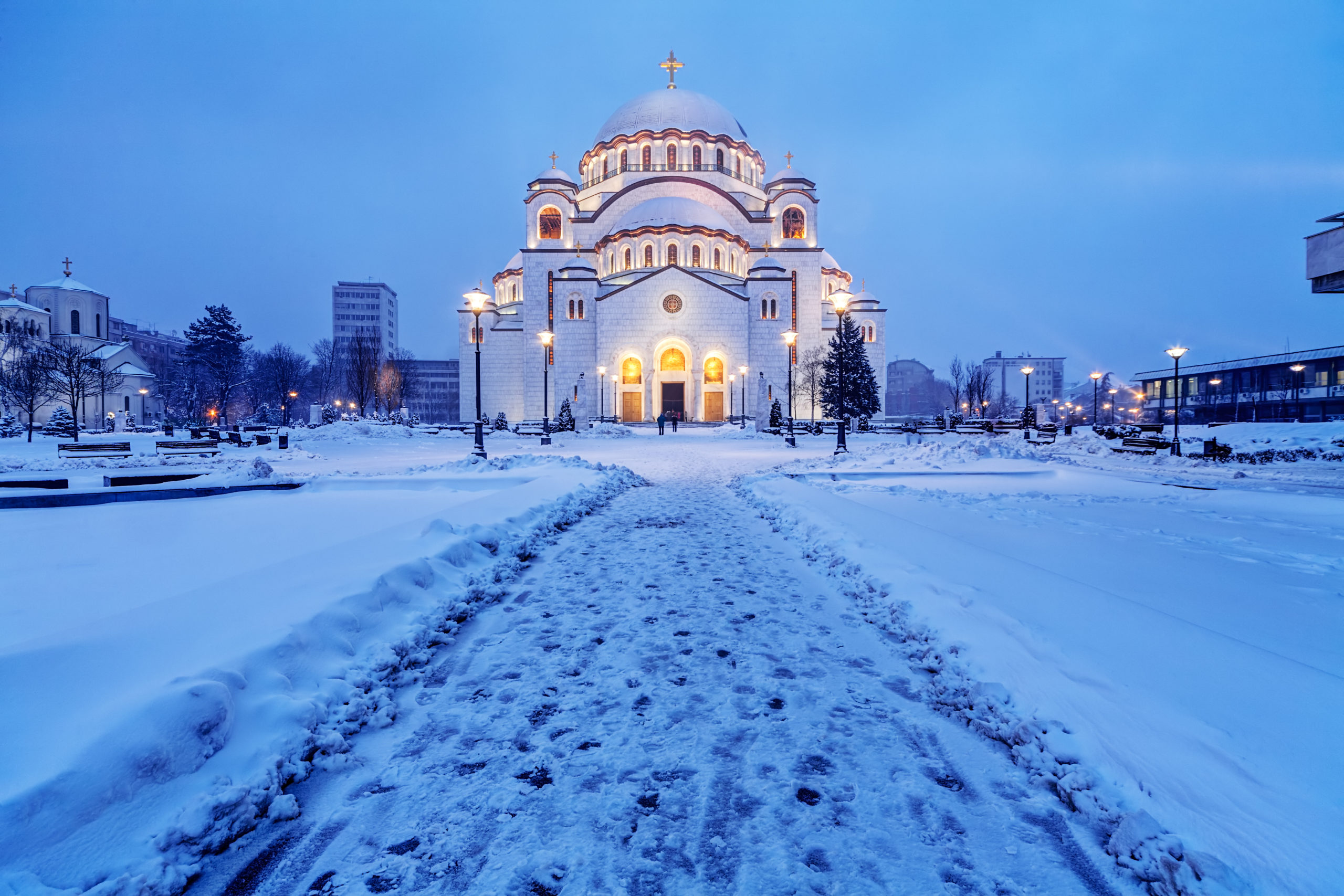
Saint Sava temple, Belgrade, Serbia. Photo: Vladimir Nenezic/ Shutterstock.com
NATO refused Serbia’s proposal to deploy its troops in Kosovo
On January 8, 2023, as a result of a series of clashes at the end of the last year between the government in Prishtina and the Serbian minority in northern Kosovo, Belgrade asked NATO for permission to send up to 1,000 police and army personnel into Kosovo. Serbia’s proposal was based on the UNSC decision from June 1999, which stated that the Serbian force units may be stationed in sensitive locations, such as orthodox churches within Kosovo, as long as KFOR approves such deployment.
However, KFOR (Kosovo Force), which serves as an international peacekeeping body led by NATO, has denied the request from Belgrade. This decline comes as no surprise for Serbia either, as Serbian President Vučić said before that he does not expect NATO to approve such a move. Kosovo Prime Minister Kurti stated multiple times that if KFOR gave the green light to Belgrade’s proposal, it “would be an act of aggression”, with Serbia intending to destabilize the region. The international community also voiced their concerns that approving the first request of its kind since 1999 would only increase the tensions in northern Kosovo amid the calls from the EU to stabilize the situation.
The recent tensions were triggered by the decision of the government in Prishtina to not recognize Serbian vehicles’ license plates and replace them with Kosovo ones. However, the new rule prompted a harsh response from the Serbian community, with many of its members still recognizing the Serbian authorities. This led to the Kosovo authorities being forced to postpone the local elections from December 2022 until sometime in 2023, as many Serbs blocked main roads in northern Kosovo as an act of civil disobedience against the Kosovo authorities due to the discrimination they say they have to face daily.
Although the decision to turn down the proposal of stationing Serbia’s forces in Kosovo was generally welcomed around the world, the recent shooting and wounding of two Serbs by an off-duty soldier further stirred recurring tensions in northern Kosovo. The attacks were followed by a swift response and faced condemnation from the government of Kosovo as well as internationally, but acts like these can result in deepening the distrust between the Serbian minority and ethnic Albanians.
Sources:
- Gian Volpicelli, POLITICO, “Serbian request to deploy troops in Kosovo denied by NATO”, https://www.politico.eu/article/nato-denies-serbia-request-deploy-military-kosovo-aleksandar-vucic/

Contact us